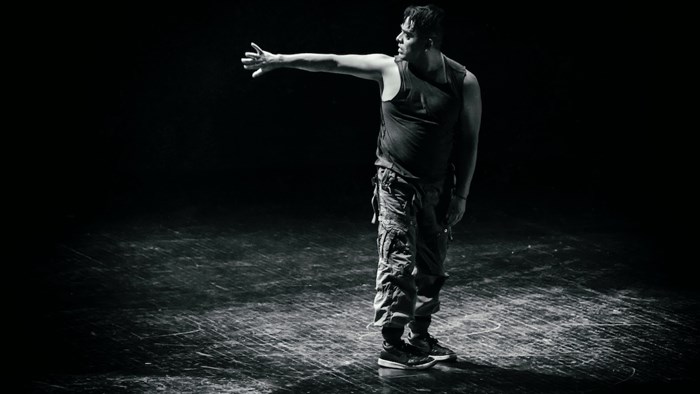Breaking the Fourth Wall: Building Faith and Resilience After Crisis

In theater and movies, there’s a way of relating to the audience known as “breaking the fourth wall.” A traditional stage has three sides, with the fourth wall being a “window” that allows the audience to see into the action. The spectators are able to peek into another world, inhabited by the actors who are seemingly unaware of the audience. When an actor breaks the fourth wall, they pause the imagined world and address the audience directly, drawing them into the action but also admitting that the world they are creating is fictional.
It wasn’t until eleven years into my public safety career that the fourth wall broke for me.
Research has shown that Post-Traumatic Stress Disorder doesn’t only come about from shocking events like the September 11, 2001 terrorist attacks. It’s also cumulative—especially for people in emergency service fields. In our sector, daily events qualify as small-scale emergencies. The more you deal with people in their worst situations, the greater the impact on your psychology. This doesn’t necessarily include hypervigilance and heart palpitations. Even when you are equipped with the tools to help, encountering people in tragic circumstances can still take a toll. Over the course of your career, each of these experiences is added to the mental Rolodex you carry into your personal life.
When the Wall Broke
For 11 years, I was able to mitigate the impact. Family, church, faith, and my ideological clarity about why I was in this career field all helped keep me on an even keel.
Then, the fourth wall broke. I was no longer dealing with a vicarious experience of third-party trauma. I was given a front-row seat to the loss of a fellow firefighter in what is known as line-of-duty-death. At times, I can close my eyes and enter back into those moments as if they were occurring right now.
For me, the experience didn't fit into the mental category of going out and helping others. This emergency occurred within the four walls I had built around my mind and soul to daily process confronting tragedy. The situation was no longer out there, but inside my safe space and involving a fellow first responder.
When crisis response is your career, you become accustomed to shrugging off the previous day’s debris and getting back in the saddle. That’s what I did. I went to house fires, investigated arson, managed hurricanes, floods, and snowstorms, and kept moving forward. But the fourth wall was still broken.
As the years went by, I began to obsess over certain things. In the fire service, cardiac events are the leading cause of line-of-duty deaths. Cardiac-related deaths stalked the professional literature, and my mind became fixated on them. Though I always managed to function during incidents on the job, I would go home wondering if my wife would some day wake up to find me dead, another cardiac event statistic. At one point, I was even transported to the hospital with high blood pressure, thinking I was having a heart attack.
At that point, I finally discovered that there is a significant difference between knowing something cognitively and truly knowing it (foundationally or spiritually). As a former philosophy major, I would routinely talk myself in circles regarding this issue. I was a faithful believer, taught Sunday school, and had a strong support network. I thought I knew all the answers.
I’ve since come to understand that mental knowledge of God and logical reasoning are not enough. I had a heart problem in the spiritual sense. Nineteenth-century Existentialist philosopher Søren Kierkegaard believed that logical reasoning and thinking through things, especially matters of faith, can only get you so far. At some point, faith needs to be experienced. For some, that comes at a point of existential crisis. The crisis comes when you realize you don’t have the tools to get yourself out of your predicament. You are no longer sufficient in an area of your life you believed you could control. Your fourth wall is obliterated; you’re at the bottom, forced to look up.
When I looked up, I found God. I realized that I had harbored a big, spiritual blind spot. I’d trusted God with my big-picture concerns: forgiveness, a roadmap for morality, and a lens for interpreting meaning and existence. But for my day-to-day, I harbored a rugged, individualistic mindset.
What Christ Calls Us To
I had my existential crisis and realized that true dependence on God was not just a larger, philosophical idea, nor was it simply a foundation for pursuing an idealistic career path. As Luke tells us in Acts, God is the one in whom “we live, move, and have our being.”
Christ is not soley calling us to public service or to practice social justice. Rather, such things are the clear outpouring of God’s agape love. Committing to good works in God’s name is putting the cart in front of the horse.
Jesus is calling us to radically identify with Him, and this identification is more than a balm for the troubled minds of those of us who walk with others in tragedy. Instead, it is essential to serving others in an authentic, resilient, and sustained way. This means waking up every day in prayer and thanksgiving for another sunrise and the important people in our lives.
Following the challenge of the pandemic and a vitriolic social-political environment, service-minded people are emotionally, spiritually, and physically stretched. Police, firefighters, medical personnel, public health professionals, pastors, and social workers around the world are feeling the strain. Many are trying to find their way back from burnout to the critical public services that communities rely on.
Peace comes from regularly seeking God and recognizing that our vocations are not about us or our qualifications, despite our causes’ moral urgency. To find true resilience, we must seek God’’s kingdom and His righteousness—first, last, and always.
Matt Marietta has served as a firefighter and police officer for 26 years and is currently a deputy fire chief and emergency management director in a metropolitan Atlanta suburb. He is a graduate of Wheaton College and has earned a MA and PhD in political science from Georgia State University. He hopes to use his professional and personal experience in the emergency services to support others who are serving their communities in the humanitarian fields.
The Better Samaritan is a part of CT's
Blog Forum. Support the work of CT.
Subscribe and get one year free.
The views of the blogger do not necessarily reflect those of Christianity Today.






















